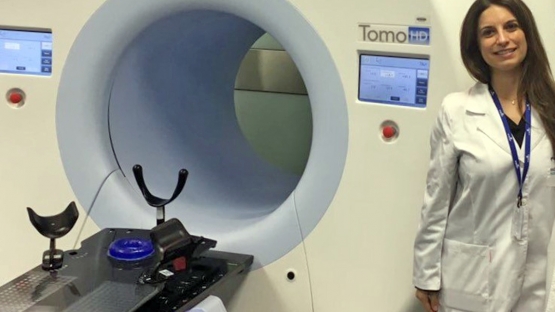María Cecilia Atencio Rosselot is a radiologist in Mendoza, Argentina. This year she is participating in a Master’s course in Advanced Radiotherapy in Chile at the Arturo López Pérez Foundation with the support of the IAEA. María Cecilia will be sharing her experience of the course through a series of blog posts.
Versión en español: Mi Participación en el Máster de Radioterapia Avanzada: Blog, Episodio 1
Santiago, Chile, August 2017: Ten weeks of the twelve months of study in Santiago de Chile have already passed. The beautiful and well-organized city of Santiago has welcomed us warmly, and its huge oncological hospital has generously opened its doors to us.
For those who don’t know, we are a group of 14 radiation oncologists from various countries in Latin America. The IAEA has provided us with the opportunity to sharpen our skills at the Arturo López Pérez Foundation. This large institution, under the direction of Dr. Raúl Marsiglia, is internationally renowned for cancer diagnosis and treatment. The course curriculum is endorsed by the excellent University of Los Andes.
When we arrived in Santiago, we were greeted at a formal ceremony attended by various national and international authorities. At the event, speakers highlighted that this Master’s course is the first of its kind in Latin America, and the first to be entirely funded by the IAEA.




